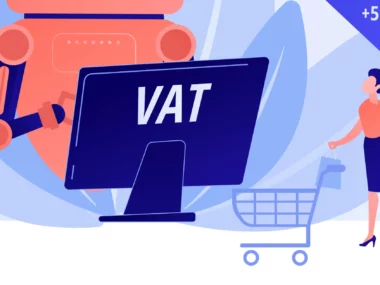Table of Contents
Introduction
A salary advance is a financial option that allows individuals to access a portion of their future income before payday. This article aims to provide a comprehensive overview of salary advances, exploring their benefits and drawbacks. By understanding the concept and considering various factors, individuals can make informed decisions about whether a salary advance is the right choice for their financial situation.
Understanding Salary Advances
Salary advances, also known as payday advances, are distinct from traditional loans in several ways. While loans typically involve borrowing a lump sum amount and repaying it over time with interest, salary advances refer to a smaller portion of one’s future income that is paid upfront. These advances are often requested due to immediate financial needs, such as unexpected expenses or emergencies. By having access to a portion of their salary early, individuals can manage their financial responsibilities without resorting to traditional borrowing options.
The Benefits of Taking a Salary Advance
Quick access to funds in times of need
One of the most significant advantages of a salary advance is the immediacy it offers in accessing funds. Traditional loan applications can be time-consuming and require extensive documentation, whereas salary advances are designed to provide a swift resolution to urgent financial situations. With a salary advance, individuals can obtain the necessary funds quickly, allowing them to address pressing needs promptly.
No credit check or collateral required
Unlike traditional loans, salary advances typically do not require undergoing a credit check or providing collateral. This alleviates the stress that individuals with poor credit history may experience when seeking financial assistance. Furthermore, the absence of collateral safeguards the borrower’s assets, as salary advances are solely based on the future income that the individual will receive.
More favorable terms compared to traditional loans
Compared to traditional loans, salary advances often offer more favorable terms. Since the advance is based on an individual’s paycheck, the repayment terms are usually structured to align with the borrower’s next payday. This can alleviate the burden of long-term debt, as the advance is repaid relatively quickly. Additionally, some employers may even offer salary advances interest-free or at a lower interest rate, further enhancing the appeal of this financial option.
Factors to Consider Before Taking a Salary Advance
Assessing Financial Situation
Before opting for a salary advance, it is essential to evaluate personal financial stability. This assessment involves considering factors such as current savings, regular income, and ongoing financial obligations. By understanding one’s financial standing, it becomes easier to determine if a salary advance is a feasible solution or if alternative options should be explored.
Employer Policies and Practices
Reviewing the employer’s policy regarding salary advances is crucial for informed decision-making. Each company may have specific rules in place, such as the frequency of salary advances or the maximum amount that can be advanced. Understanding the repayment terms and conditions is equally important, as defaulting on a salary advance can lead to severe consequences, potentially impacting both employment and future borrowing opportunities.
Alternatives to Salary Advances
Exploring alternative financial options is always prudent before committing to a salary advance. Traditional loan alternatives, such as personal loans or lines of credit, may provide more favorable interest rates or longer repayment periods. Additionally, other methods, such as negotiating payment plans with creditors or seeking financial assistance from family and friends, should be considered to adequately address immediate financial needs.
The Downsides of Salary Advances
Potential impact on future paychecks
While salary advances can provide quick access to funds, it is important to understand that this early payment reduces the amount of income available in subsequent paychecks. This reduction can impact regular budgeting and may require adjustments to cover necessary expenses until the next payday. It is crucial to carefully consider one’s financial obligations and the ability to manage with a diminished income temporarily.
High-interest rates and fees associated with salary advances
One of the significant drawbacks of salary advances is the cost associated with them. Depending on the lender and individual circumstances, salary advances may attract high-interest rates and fees. Borrowers should thoroughly review the terms and conditions of the advance, including any additional fees, to ensure they are aware of the true cost of borrowing. Comparing different salary advance options can help identify the most affordable and reasonable choice.
The risk of falling into a debt cycle
A potential risk associated with salary advances is the temptation to rely on this source of borrowing repeatedly. Due to the ease of obtaining a salary advance and the immediate financial relief it offers, individuals may become dependent on this financial option for their ongoing needs. This cycle of borrowing can lead to a situation where a significant portion of future income is continuously dedicated to repaying advances, hindering overall financial stability.
Important Considerations for Repayment
Developing a repayment plan
Creating a solid repayment plan is crucial to manage a salary advance effectively. This plan should outline the budgeting adjustments necessary to accommodate the reduced income after repayment. By prioritizing essential expenses and potentially reducing discretionary spending, individuals can ensure timely repayment without compromising their overall financial well-being.
Balancing repayment with ongoing financial obligations
It is essential to strike a balance between repaying the salary advance and fulfilling other financial obligations. Timely payment of bills, rent, and other regular expenses should not be compromised solely to repay the advance quickly. Careful budgeting and negotiation with creditors may be necessary to maintain financial stability during the repayment period.
Seeking professional advice on debt management
Individuals who find themselves struggling with the repayment of a salary advance or experiencing financial difficulties should seek professional advice. Credit counseling agencies or financial advisors can provide guidance on debt management, negotiations with lenders, and developing long-term financial strategies. Seeking expert assistance can help individuals regain control of their finances and avoid further financial challenges.
Pros and Cons of Taking a Salary Advance: How to Apply for a Salary Advance
Applying for a salary advance typically involves several steps to ensure a smooth process:
- Contact the employer’s human resources department or payroll team to inquire about the company’s policy on salary advances.
- Obtain any necessary forms or documents required for the application process.
- Complete the application form accurately, providing all requested information.
- Submit the application along with any supporting documents required, such as recent pay stubs or bank statements.
- Follow up with the appropriate department to verify the status of the application and inquire about any additional steps or information needed.
- Once approved, carefully review the terms and conditions of the salary advance before accepting the funds.
Case Studies: Real-Life Experiences with Salary Advances
Examining real-life experiences can shed light on the potential outcomes of taking a salary advance. These case studies offer valuable insights into both positive and negative experiences, allowing individuals to learn from others’ mistakes or successes. By considering these stories, readers can gain a better understanding of how a salary advance may impact their own circumstances.
Safeguards and Regulations for Salary Advances
Several legal protections and regulations exist to safeguard individuals who opt for salary advances:
- The Truth in Lending Act (TILA) requires lenders to disclose the terms and conditions of the salary advance, including interest rates and fees, thus ensuring borrowers are provided with transparent information.
- The Consumer Financial Protection Bureau (CFPB) monitors and enforces regulations related to salary advances, ensuring fair lending practices and protection of borrowers’ rights.
- State and federal laws govern interest rates and fees that may be charged on salary advances, providing additional safeguards for borrowers against unscrupulous practices.
Critical Questions to Ask Before Taking a Salary Advance
Before committing to a salary advance, individuals should ask themselves the following critical questions:
- Will a salary advance solve my immediate financial needs, or are there alternative options that may be more suitable?
- How will a salary advance affect my long-term financial goals and overall financial stability?
- What are the potential consequences if I am unable to repay the advance within the agreed-upon timeframe?
- Are there any alternatives, such as traditional loans or assistance programs, that may better accommodate my specific financial situation?
Conclusion
Considering the pros and cons of taking a salary advance is crucial to making an informed decision. While the quick access to funds and lack of credit check make salary advances appealing, the potential impact on future paychecks and the associated costs should not be overlooked. By carefully assessing personal financial circumstances and considering alternative options, individuals can determine whether a salary advance is worth pursuing.
The guidance of professionals and a thorough understanding of legal protections and regulations can further enhance the decision-making process. Ultimately, individuals should approach salary advances with caution and always prioritize long-term financial stability.






